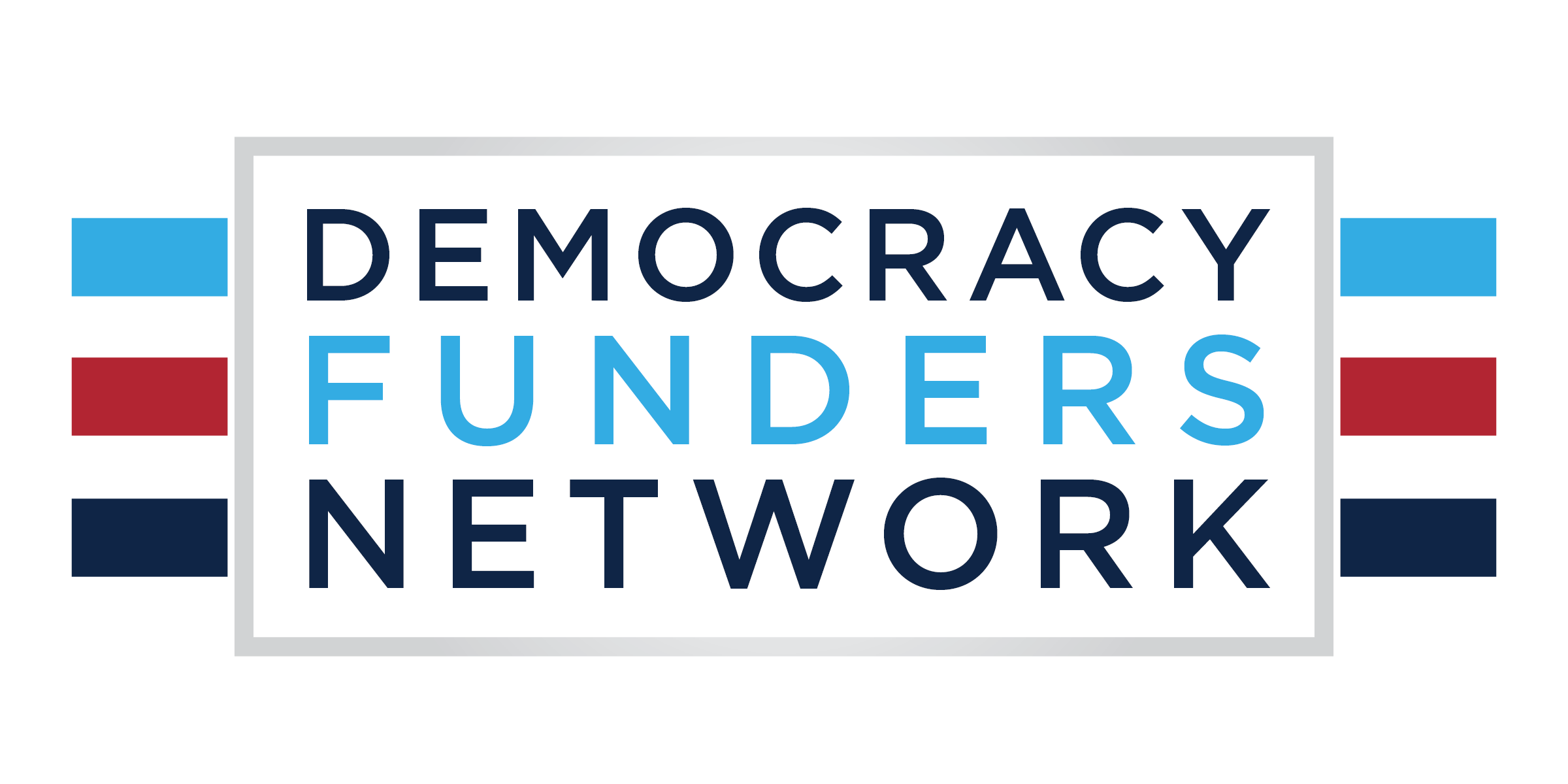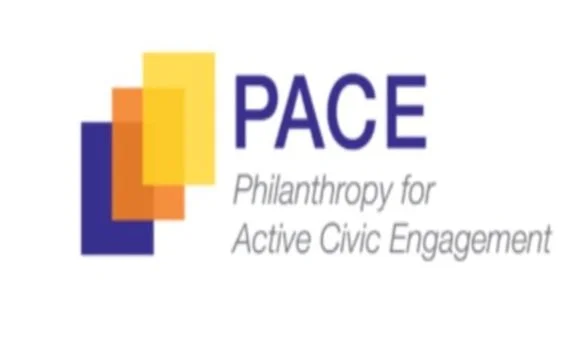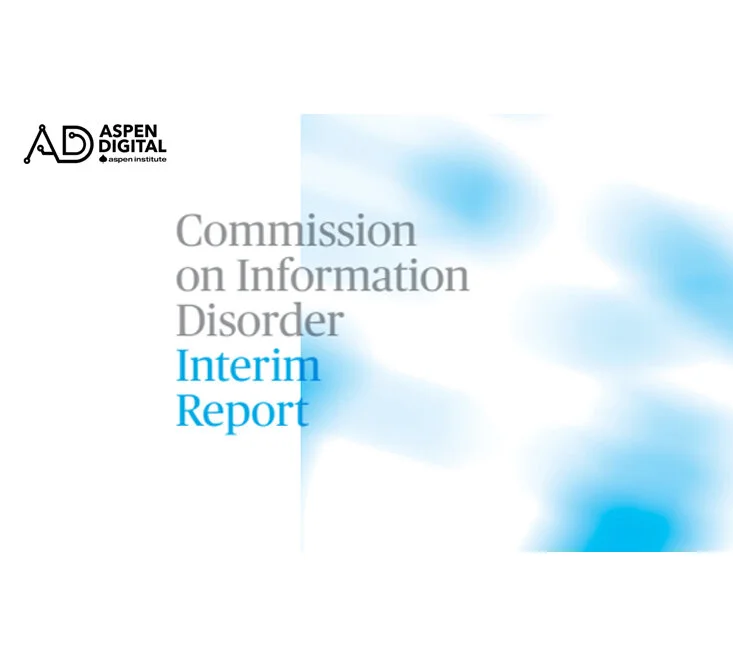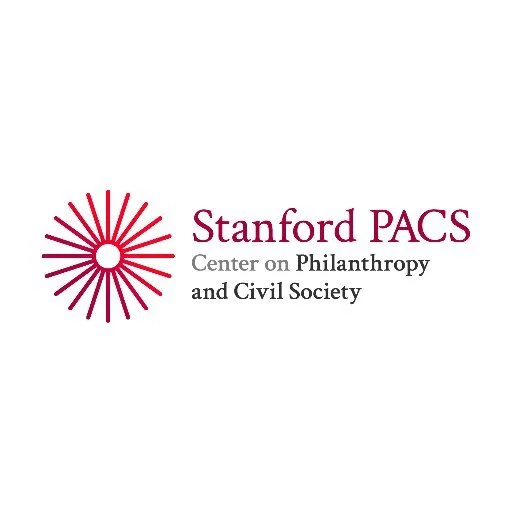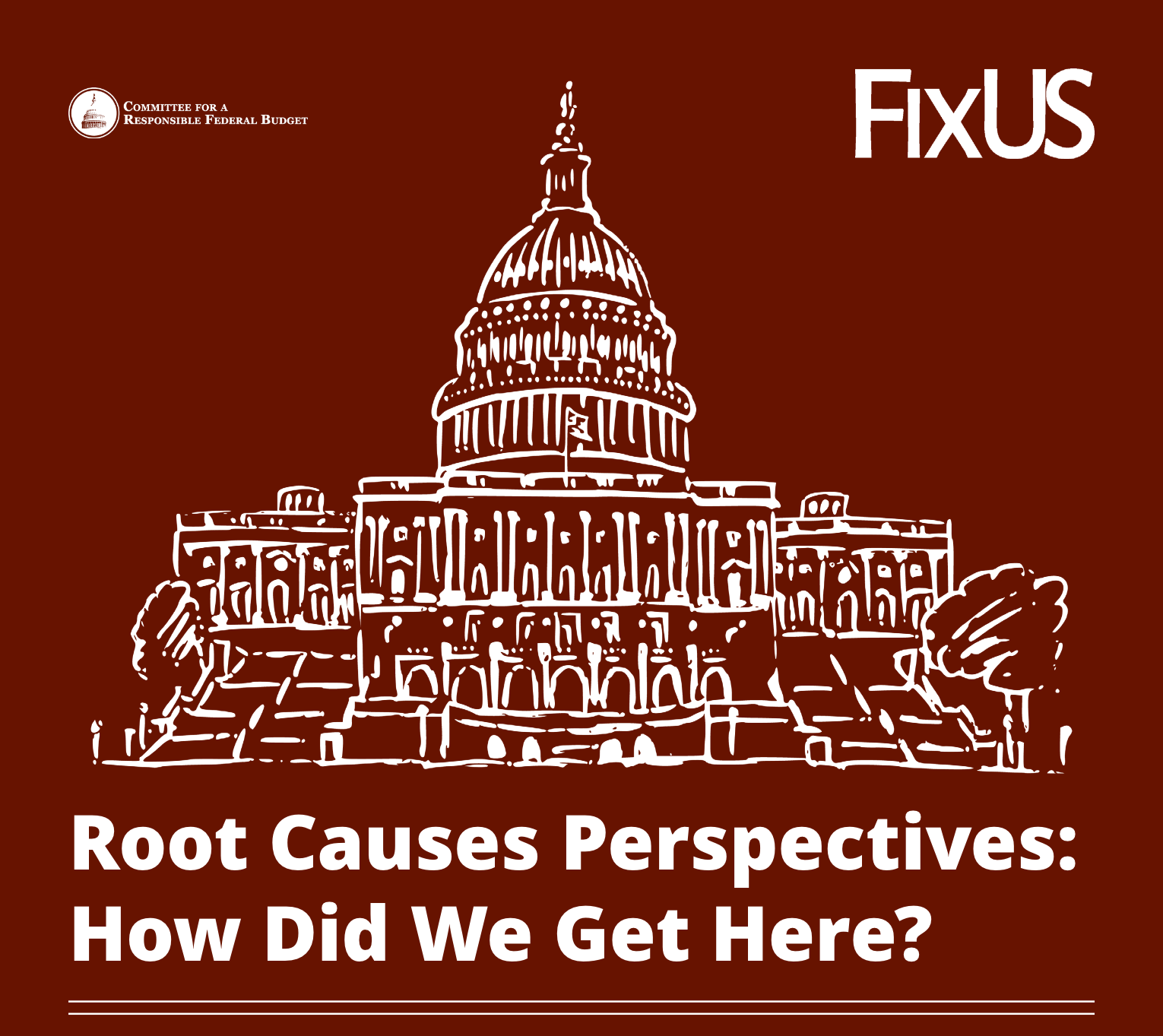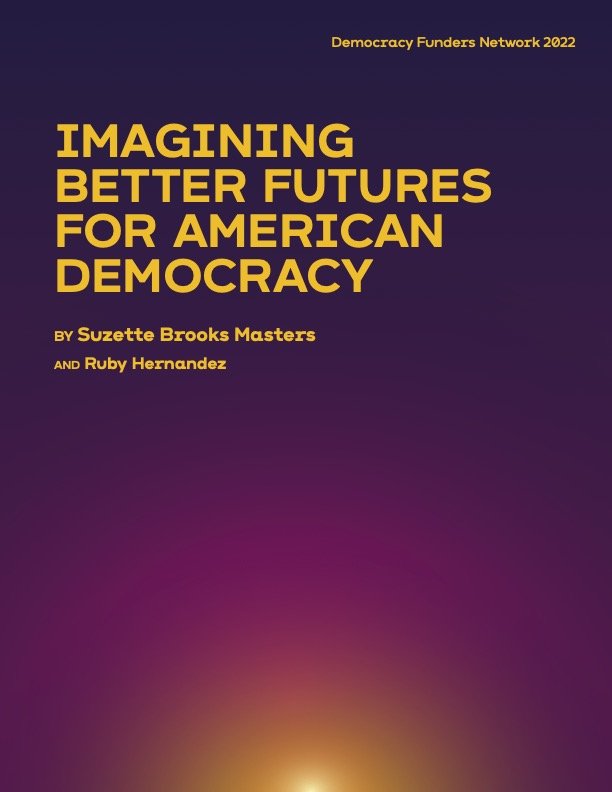With U.S. democracy in crisis, guest contributors Mike Berkowitz and Rachel Kleinfeld argue that philanthropy cannot stick to its usual playbook. They outline five ways funders can improve how they approach this work.
PACE’s Civic Language Perceptions Project seeks to understand peoples’ perceptions of the language associated with civic engagement and democracy work.
PACE seeks to advance liberal democracy’s ideals and our vision is one in which all Americans are informed and empowered to contribute to civic life. To do so, we need to understand what perceptions and associations exist related to “civic and democracy work,” and how these terms and concepts resonate (or don’t), so that we can work more inclusively, effectively, and constructively.
That’s why PACE conducted an updated, nationally representative survey of 5,000 Americans as step 1 into a larger process of inquiry and discovery. The exploration of this data– and what it means for our collective work– is only just beginning. And we can’t (and shouldn’t) do it alone. PACE invite others who are working to advance the principles, values, and norms of liberal democracy to see the data as theirs to explore, to probe, to ask questions, to make meaning, and ultimately, to improve our shared efforts of increasing civic engagement and strengthening democracy.
Are internet technologies doing more harm than good to our democracy? And what – if anything – should lawmakers do about it?
Because these questions are critical to U.S. elections, democracy and public health, Gallup and Knight Foundation sought American views on the way forward.
Surprisingly, Americans’ opinions did not always follow party lines when it comes to Internet regulation. In fact, half of Americans occupy a diverse middle ground, a new Gallup/Knight survey of 10,000 adults found, offering a new lens on the national conversation on free expression online.
Earlier this year, Citizen began comprehensive quantitative and qualitative analysis of the modern American Right, examining attitudes towards Authoritarianism, QAnon, Voting & Elections, COVID-19, and Climate Change.
This report summarizes our findings and affirms our initial hypothesis that while political polarization puts our democracy at increasing risk, opportunities exist for Citizen partners to reach pragmatic voters on the Right and engage them in efforts to strengthen democracy and address other pressing national issues. READ MORE>
Aspen Institute’s Commission on Information Disorder aims to identify and prioritize the most critical sources and causes of information disorder and deliver a set of short-term actions and longer-term goals to help government, the private sector, and civil society respond to this modern-day crisis of faith in key institutions. The Commission has identified three priorities for which it will develop recommendations in the second stage of its work: (1) reducing harms, (2) increasing transparency and understanding, and (3) building trust. This document is The Commission’s Interim Report for 2021. READ MORE>
Democracy is under severe threat in the United States and around the world, but figuring out how to use your financial resources to protect and sustain American democracy is no easy feat. For one thing, the decline of democracy is an incredibly complex challenge with a multitude of domestic and global drivers. Not only is the problem multi-causal, but the potential solutions are manifold as well. Finally, there are dozens of organizations in the field—many with similar-sounding names—and a plethora of networks, pooled funds, and other resources designed to engage donors on this issue.
What is an aspiring democracy funder to do? READ MORE>
Everyday Americans and political insiders alike have become increasingly concerned with the dangerous levels of division, governmental dysfunction, and public distrust in our country. These trends had been intensifying for several years, and were on display in stark terms this past year in the midst of numerous domestic crises. Our country’s responses to COVID-19, widespread civil unrest, and the January 6 storming of the Capitol each highlighted the seriousness of the situation. READ MORE>
A shift toward online news consumption, combined with greater political polarization, has altered the media landscape. As part of its Trust, Media and Democracy initiative, the John S. and James L. Knight Foundation partnered with Gallup to create NewsLens — an experimental platform and news aggregator first developed in 2017 to facilitate novel research on how people interact with the news online in a manner that offers insights to academics, technology policymakers and journalists. In this report, Gallup examines data gathered through NewsLens during the 2020 presidential campaign to asses how much partisanship influences the way people engage with news content and whether common ground still exists over which stories are considered good journalism. READ MORE>
This rapid issue brief, based on DFN's research and conversations with experts, practitioners, and experienced funders, will help donors get oriented to the current state of the field and explore frameworks for using their resources to combat disinformation. The report includes detail on strategies to combat disinformation by increasing accountability for creators and purveyors of disinformation, building healthier media ecosystems, and increasing public resilience to disinformation. READ MORE>
The Knight Foundation’s new report “Healthy Local News & Information Ecosystems: A Diagnostic Framework,” presents an approach to assessing the health of local news ecosystems tested and refined across nine U.S. communities of various sizes. Accompanying the report is a playbook and toolkit designed to help funders and other community organizations evaluate strengths and opportunities in their locale. READ MORE>
If the world is going to stop deliberate or unintentional misinformation and its insidious effects, we need to radically expand and accelerate our counterattacks, particularly human-centered solutions focused on improving people's media and information literacy. READ MORE>
Steven Waldman discusses why philanthropy should be a persistent, ongoing source of income for local news, alongside subscriptions and advertising, the two primary sources of local news support to date. READ MORE>
The Election Integrity Project’s final comprehensive report on voting-related mis- and disinformation in the 2020 election includes insights on significant narratives that shaped 2020; how misinformation progressed from incidents, to narratives, sometimes to conspiracies; how the social media ecosystem was leveraged; tactics and patterns; “repeat spreaders”; and how policy shapes propagation. READ MORE>
Julie Sandorf of the Charles H. Revson Foundation discusses how pooled funds or giving circles to support local media could make a big difference in the media environment. READ MORE>
Steven Waldman on the importance of philanthropic support for local news. READ MORE>
Joe Goldman on how philanthropy can support the fight for a more open and just democracy. READ MORE>
Mike Scutari on how philanthropy can continue and deepen efforts to curb misinformation in the coming years. READ MORE>
On November 21, 2022, PACE and DFN hosted a webinar to present newly developed evidence from four organizations–three of which were grantees from PACE’s Faith In/And Democracy Fund. During the webinar, each speaker presented evidence from their work and then participants engaged with the speakers in breakout room conversations.
Building a robust, high functioning pluralist democracy in the U.S. capable of ushering in better futures for Americans requires us to think boldly and move away from reaction, apathy, and surrender. The extraordinary times we live in, full of rapid change, uncertainty and possibility, call upon us to identify and lift up positive disruptors who dare to dream and imagine what could be.
DFN’s report Imagining Better Futures for American Democracy is a call to action to imagine what our democracy could become. Informed by dozens of interviews with visionary thinkers and doers from a variety of fields and viewpoints, including futurists, activists, thought leaders, creatives, artists, religious leaders, and funders, the report shares their insights on why positive visioning matters, discusses how those visions of better futures relate to democracy and governance systems, and asks how we can inspire more Americans to dream bigger and develop a sense of agency to bring those ideas to fruition.
Below are the report’s key findings and recommendations:
Findings:
Enthusiastic and emphatic agreement that positive visions of the future matter tremendously because they help us to imagine better alternatives, motivate us, and guide us to achieving positive societal outcomes. They also reinforce the idea that we have agency to shape our individual and collective futures and those of our descendants.
Several points of disconnection –
Few interviewees saw governance as critical to achieving the better futures they articulated, or had thought about how to improve and reimagine democracy.
The future-oriented community seldom connects with the democracy community.
America lags in experimenting with new forms of future-oriented governance models and thinking.
The people we interviewed are also disconnected from each other, although there are some hubs and communities of practice that provide connective tissue that some interviewees are a part of.
Many obstacles (e.g., complex problems from the local to the planetary, conflict-driven media and political environments, dystopian narratives, racism and othering) currently stand in the way of positive visions of the future emerging at scale.
Positive stories about the future and narratives of mutuality and abundance exist but are barely breaking through in mass culture.
Recommendations:
While we have a strong foundation on which to build – great ideas, visionary leaders, real-world experiments, powerful stories about better futures, and media campaigns – we need more infrastructure and connective tissue to gain traction and impact. Accordingly, we recommend three types of strategies:
Strengthen the positive visioning ecosystem by investing in infrastructure and relationships
There are numerous ways to build and support an emerging ecosystem and to create connections between those broadly engaged in positive visioning and those working specifically on democracy issues. We recommend more networking, collaboration, and mapping, more productive chances to convene donors and working groups around the future of democracy, and greater use of futures thinking tools to change mindsets.
Model what’s possible and fund experimentation
We want to explore how to adapt governance innovations from outside the U.S. that incorporate a futures orientation, a longer planning horizon, and an intergenerational fairness lens. We also see promise in funding innovative efforts to strengthen and invigorate democracy in the U.S., especially at the state and local level, by using technology, engaging youth, creatives, game designers, and speculative fiction writers, and tapping into collective imagination exercises.
Strengthen narrative systems & amplify positive, futures-oriented content
We need strategies that elevate and sustain narratives of abundance, interdependence, and mutuality and that amplify current bright spots for greater impact. Content also matters. We need more of it that’s positive, inspiring, and hopeful about what we can build together. That means influencing which stories are told, by whom, and how.
The Constitution Drafting Project brings together three teams of leading constitutional scholars—team libertarian, team progressive, and team conservative—to draft and present their ideal constitutions. Team libertarian was led by Ilya Shapiro, then of the Cato Institute, and included Timothy Sandefur of the Goldwater Institute and Christina Mulligan of Brooklyn Law School. Team progressive was led by Caroline Fredrickson of Georgetown Law School and included Jamal Greene of Columbia Law School and Melissa Murray of New York University School of Law. Team conservative was led by Ilan Wurman of Arizona State University College of Law and included Robert P. George of Princeton University, Michael McConnell of Stanford Law School, and Colleen A. Sheehan of Arizona State University.
In this moment of crisis, donors must use all the tools available to protect American democracy. Tax-deductible philanthropy alone is insufficient.
In case you missed DFN’s The Role of Faith Communities in Preserving Democracy program, PACE provided a summary of the webinar.
In this meeting, DFN explored key questions around the role faith communities can play in preserving American democracy: What can faith communities contribute to a pro-democracy movement? How can faith leaders and communities be mobilized to act in defense of democracy and resist embracing extremist and anti-democratic viewpoints? What are the potential benefits of faith engagement in the pro-democracy movement, and what do we risk by failing to engage religious communities?
READ MORE>
Dr. Rachel Kleinfeld, Senior Advisor to DFN and Senior Fellow at the Carnegie Endowment for International Peace, authored a U.S. Democracy Funding Strategy report laying out a comprehensive strategic approach to the set of challenges facing our democracy and what we might do at scale to solve them. She lays both long-term and short-term critical strategies and offers pictures of 3 possible futures we might achieve through them.
The Republican Party’s transformation under Donald Trump may have seemed sudden, but it was decades in the making. From acclaimed New York Times political reporter Jeremy Peters, Insurgency: How Republicans Lost Their Party and Got Everything They Ever Wanted, is a compelling look at the fracturing of the GOP and how party leaders misunderstood their own voters. Peters argues that by abandoning long-held pillars like small-government and fiscal responsibility, the party’s embrace of Trumpism, along with its imperviousness to moderating forces, has extended the life of the American Far Right well into the next century.
Join us for a live conversation between MSNBC political contributor Yamiche Alcindor and Peters, as they discuss how ideology and aggression came to take hold of the Republican party, and changed the course of American politics.
Here at IP, we’ve been thinking a lot about democracy funding lately. We marked the one-year anniversary of the January 6 insurrection last week, and it’s the start of another election year (hooray!). But that’s only part of it. Over the longer term, the heated debate around our imperiled democracy is unraveling closely held preconceptions about nonprofit funding, sending civil society into terra incognita.
The federal workforce includes about 4,000 political appointees who are selected by the president, 1,200 of whom require Senate approval. Despite presidential interest in filling positions across government to advance political and policy objectives, the number of Senate-confirmed positions, along with the complexity of the appointment process, has resulted in a slowdown of confirmations and an increase in vacancies. This situation limits agency operations and reduces the president’s capacity to govern and the Senate’s power to hold officials accountable. This new report from the Partnership for Public Service offers seven potential approaches to streamline the political appointment process for positions requiring Senate confirmation. READ MORE>
At times of dysfunction on a national level, reform possibilities have often arisen from the local level. The Fallowses describe America in the middle of one of these creative waves. Their view of the country is as complex and contradictory as America itself, but it also reflects the energy, the generosity and compassion, the dreams, and the determination of many who are in the midst of making things better. READ MORE>
